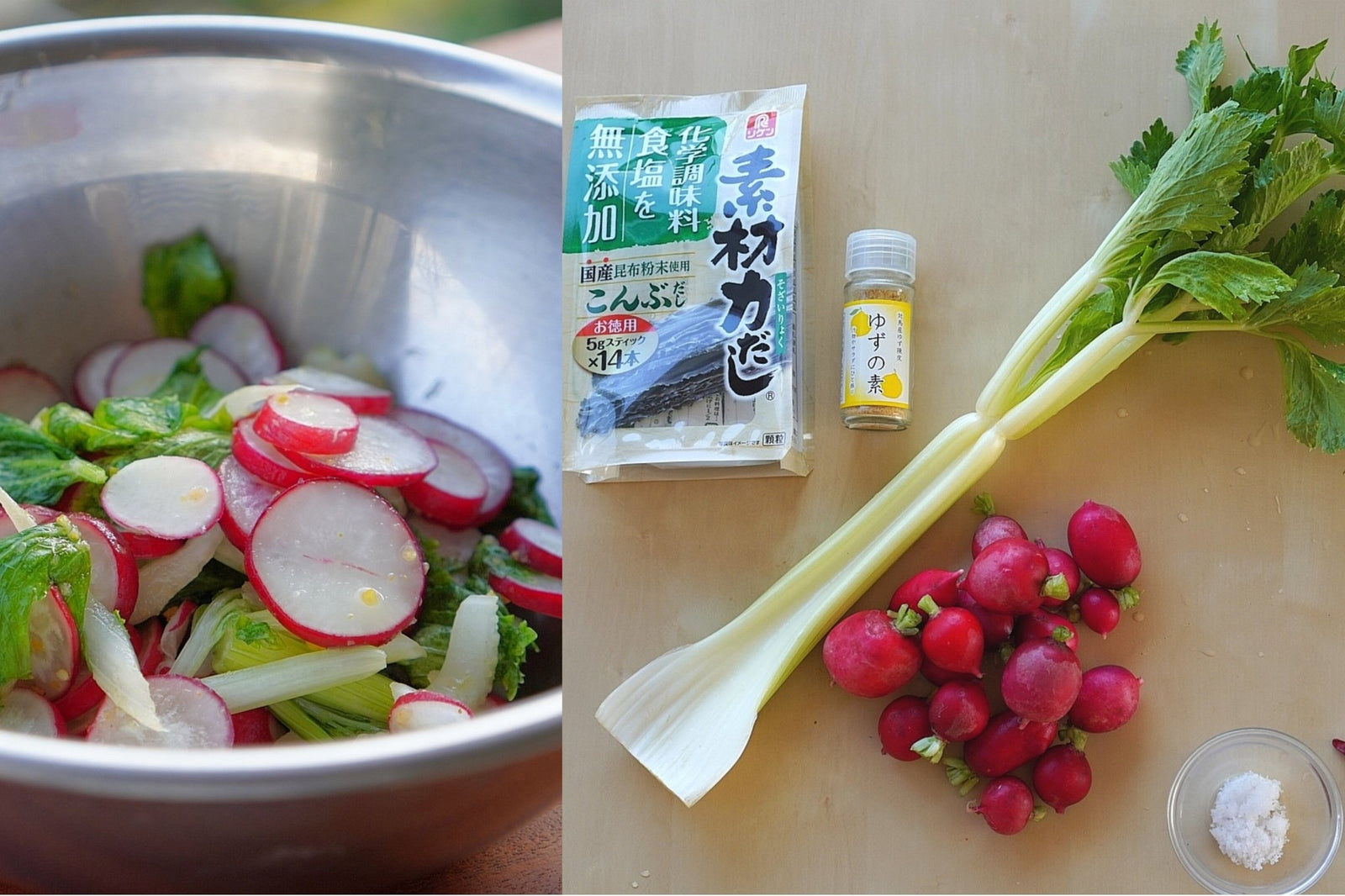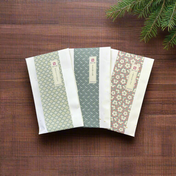Have you had a Japanese meal called Teishoku (定食) in a Japanese restaurant?
Teishoku means a set meal. It usually has a main dish, rice, miso soup and side dishes. You usually have Tsukemono (漬け物) as side dish.

Tsukemono (漬け物) means pickles, which have been a traditional preserved food for many years. There are many pickling methods using salt, vinegar, Miso, Nuka (rice bran) ,Sakekasu (Sake lees - left over at the end of the brewing process of Japanese rice wine) and so on. Tsukemono is an important dish in Japanese cuisine although it is just a side dish and the amount is small.
Tsukemono adds color, flavors and crunchy texture to the meal. It also refreshes to counter the heaviness of rich foods. From the aspect of nutrition, Tsukemono is great food containing vitamins, probiotics.
Many people make Tsukemono at home. I am now pickling Japanese apricots for making Umeboshi (梅干し), salt-pickled Japanese apricots. My mother makes Nukazuke (ぬか漬け)- rice bran-pickled vegetables for every meal.
If you don't have time to make them, you can also buy Tsukemono in shops. You will be surprised how many different types of Tsukemono are in stores.
So, Tsukemono is very important for Japanese cuisine.
From all the different varieties of Tsukemono, I chose to show you Asazuke(浅漬け).
What is Asazuke(浅漬け)?
Asazuke(浅漬け) literally means shallow pickling, it is also called Ichiyazuke(一夜漬け) literally means one night pickling. Asazuke is a type of Tsukemono pickled for a short time and basically pickled only in salt.
Good points of making Asazuke are that it can keep vitamins and minerals in the vegetables, as pickling by salt and not heating, also keeps the vegetables their original bright color. In addition, you can enjoy the crispy texture!!
There are many ingredient options for Asazuke. We usually use vegetables such as cabbage, carrots, eggplants, daikon radish, Kabu-white radish, and more.

Kabu no Asazuke(かぶの浅漬け) - Light pickled Japanese white raddish and the leaves.
I chose small red radishes and celery for a recipe as I suppose you would be easier to find them in your supermarket.
Try making Asazuke and enjoy the fresh taste and the texture of them!!
Things that are good to add
Before starting a recipe, I will explain a little more about Asazuke.You can enjoy Asazuke using just salt. But it would be more delicious if you add some flavor and umami savoriness into it.
Things you can add when pickling ... chill peppers, ginger, Yuzu *1, Konbu *2
Things you can add after pickling / before serving ... sesame seeds, shoyu(soy sauce)
1 Yuzu (ゆず)
Yuzu is a type of Japanese citrus fruit. Use the peel, chop the peel finely and add it into your Asazuke. You can also use dried peel instead of fresh peel as the Yuzu season is winter.
Here is dried the Yuzu powder. I used it this time.

You will taste a nice and fresh flavor in Asazuke!!
If you can't get it, you can use lemon peel instead of Yuzu.
2 Konbu (昆布)

Konbu (Kombu) is a variety of bull kelp. Konbu is eaten itself, also taken as soup stock. Konbu contains glutamic acid, which enhances flavor.
Read more about kombu → Kombu (Kelp), the Role in the Japanese Diet
Add chopped Konbu into Asazuke. If you don't have Konbu at home, you can also use powder.
Here is Konbu-dashi powder, I used this time.

Sozairyoku: Japanese soup stock, Konbu-dash, 14 x 5g packets 素材力だし こんぶだし
Konbu will add nice umami savoriness into your Asazuke!
Asazuke (Light-pickled) of Red radishes and Celeries Recipe
ラディッシュとセロリの浅漬けレシピ

INGREDIENTS
10-15 Small red radishes
1 Celery
1 Red chili
1 tea spoon salt
1 tea spoon Yuzu powder
5g/ 1 sachet Sozairyoku Konbu

METHOD
1 Cut and slice red radishes and celery. De-seed and chop a red chili.

2 Put all the ingredients together in the plastic bag, remove the air and seal completely.
Place a heavy object on the plastic bag and leave it for 2-3 hours in the refrigerator.


If you don't have the plastic bag.....
Put all the ingredients together in the bowl, rub/massage them with hands. Place a heavy object on it and leave it for 2-3 hours in the refrigerator.

That's it !! It's done! I put sesame seeds on top before serving.

Pickling for 2-3 hours still keeps the freshness like fresh salad. You can pickle more to your taste. Also you can make your own Asazuke with vegetables you like or in your fridge.
Enjoy making your own Asazuke!
Today's Recommendations
Oishi Tea Farm: Yuzu Powder 18g

Yuzu powder made from yuzu citrus grown without pesticide by farmer Yujiro Oishi on the island of Tsushima, Nagasaki.
Sozairyoku: Japanese soup stock, Konbu-dash, 14 x 5g packets 素材力だし こんぶだし

Japanese soup stock made with Konbu (Kelp) from Hokkaido Prefecture.
No synthetic salt additives added (all salt content is obtained naturally from the ingredients).


